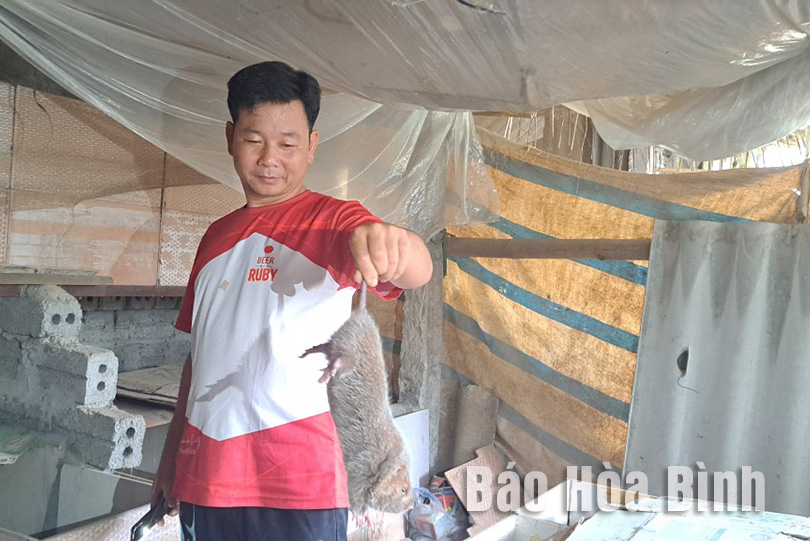



Nguyen Hong Minh raises about 200 bamboo rats, bringing about high economic efficiency.
like other farmers in Doc Lap commune, Minh has cultivated many types of crops and raised pigs, buffaloes, and cows but they failed to deliver expected results.
Even when he harvested bumper crops, profit was low due to plummeting price. He raised pigs for several years, but suffered from losses due to diseases and high prices of animal feed.
Upon knowing that game meat is favoured by consumers, he thought of raising bamboo rats as food for this type of rat is available in the locality and brings about higher value.
At first Minh bought bamboo rats from people who hunt bamboo rats in the wild and turned his old pig barn into a breeding facility. The bamboo rats grew well, but after giving birth, the female ones often bit their babies to death, reducing the number of offspring as well as economic efficiency of farming.
Minh looked for information about the trade on the internet and found out that many establishments had succeeded in raising wild bamboo rats with proper licence. He decided to follow suit. After more than two years, his bamboo rats grew healthily and rapidly multiplied. The offspring are sold to breeding households in the locality and the mature ones for consumption. Sometimes he did not have enough bamboo rats to sell.
Drawing lesson from failed attempts, he focused on raising native bamboo rats and expanding the herd. His effort has been paid off as now he has 200 bamboo rats.
According to Minh, it is easy to raise bamboo rats because they eat sugarcane and bamboo only once a day and can reach a weight of 1.5-2kg after 12 months of breeding.
With a selling price of 600.000 VND (24.5 USD) per kg, this kind of rat brings higher economic value than raising chicken or pigs, he said.